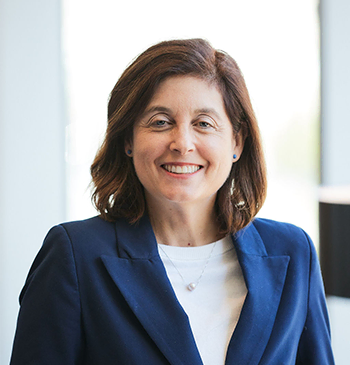
A Boardroom Conversation
Several banks have become known as serial acquirers over the years. But State Bank Financial Corp., the Atlanta-based holding company for State Bank and Trust Co., is unique among them in the sense that it uses a corporate psychologist who helps the bank weigh acquisitions and hire the right people. Culture is so important to this bank, it simply won’t work to merge with an organization that has senior executives and board members who are not in sync with the culture of State Bank. Steven Deaton, executive vice president and enterprise risk officer for State Bank, which has more than $4 billion in assets, describes how his bank handles M&A and risk management in this interview with Bank Director digital magazine.
Q: You’ve done 12 failed bank deals in seven years. You’ve done four regular M&A deals in the last three years and two business lines, so you’re a pretty acquisitive bank.
SD: We are. You could call us a serial acquirer.
Q: But also, you’re a conservative bank. You approach this from a risk management perspective. You’re the chief risk officer of the organization. Can you talk a little bit about how you approach due diligence?
SD: We look at it holistically. Before even considering [a bank] as a candidate, it has to add something to the franchise geographically or business-wise. It has to add to the overall value for our stakeholders. We get to know the people behind the organization. What we have learned over the years: It can look great on paper, but if cultures don’t align, it will not succeed.
Q: How do you assess the culture of the organizations you acquire?
SD: We get to know them, go out to dinner, talk about things besides banking. And we have been using the same corporate psychologist for 30 years. So he knows us.
Q: Why do you have a corporate psychologist? What’s his name?
SD: His name is Frank Merritt. He’s in the Atlanta area. We do a lot of screening on the front end. We call it couch time with Frank. We find there are a lot of personality traits that work well in our culture: openness, transparency. It sounds almost elementary, but it’s about treating people the way you want to be treated.
Q: What doesn’t work so well in your organization?
SD: Empire building, if someone is more concerned about building their particular area of business instead of what’s better for the whole organization, distrustful [personalities], water cooler talk.
Q: Has your corporate psychologist ever killed a deal?
SD: No. What Frank helps us do is identify issues we need to make sure we address on the front end, so we’re not surprised when the ink dries.
Q: Where does the risk framework come in when it comes to M&A?
SD: We’ve got seven or eight Tier 1 risk managers, or owners, and they’re all involved in the actual due diligence of an acquisition. We have a pretty well-defined team that will go in. For example, someone will go into credit, someone will go into compliance, someone will go into BSA/AML and within their area of expertise, identify where we may have some issues.
Q: In terms of M&A, how does the board get involved?
SD: On an annual basis, management identifies strategic priorities for the upcoming year, and they don’t change dramatically. It’s not a 12-month strategic priority list. It’s more of a longer-term list, and we augment it annually. So, the board knows what we’re always looking for. When we see something of interest, then we bring the board in, once we realize there is something material enough to pursue.
Q: So the board has specific names [of targets]?
SD: Yes.
Q: It’s not just an investment banker who comes to you and says, here’s a deal?
SD: No. We have our own internal corporate development officer who used to be one of our investment bankers at a previous bank [deal], who joined our team a few years ago. He looks for potential acquisitions for us. We keep him busy.

Join OUr Community
Bank Director’s annual Bank Services Membership Program combines Bank Director’s extensive online library of director training materials, conferences, our quarterly publication, and access to FinXTech Connect.
Become a Member
Our commitment to those leaders who believe a strong board makes a strong bank never wavers.


